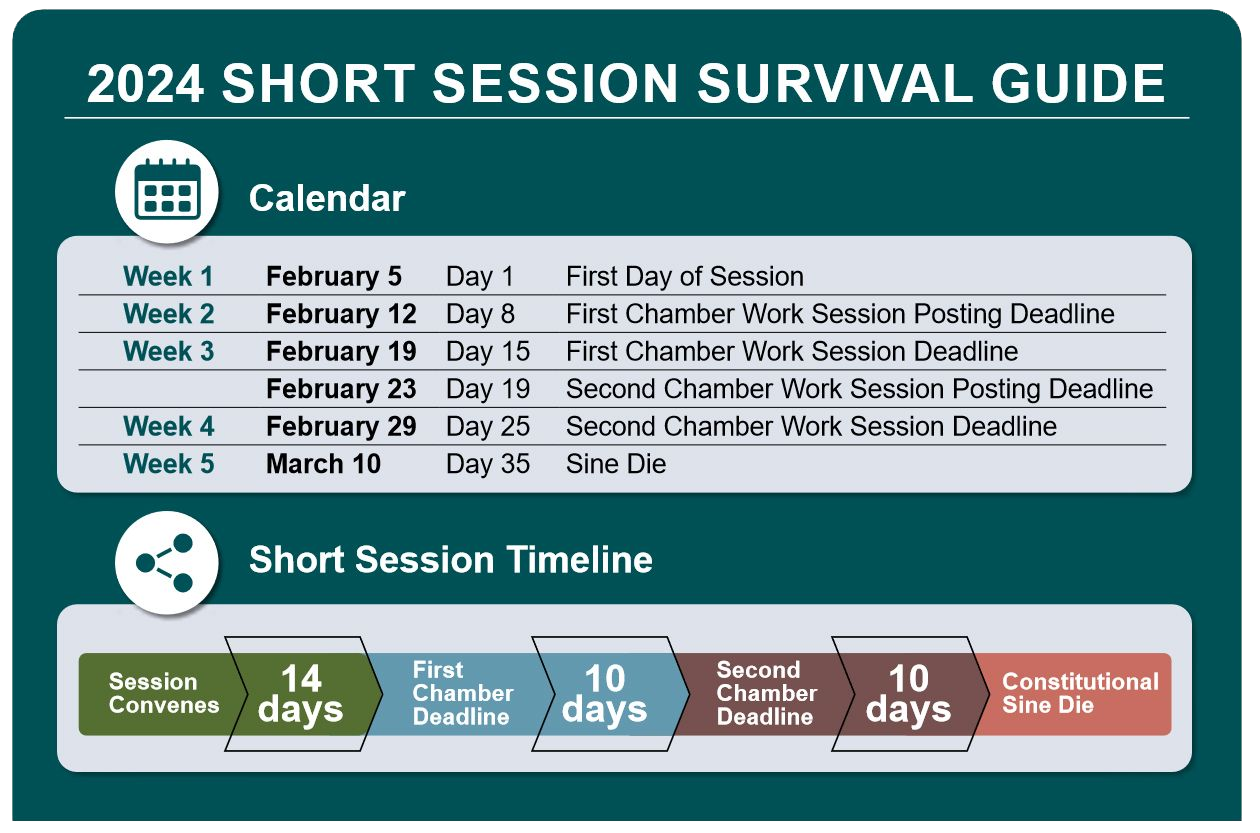Short Session Arithmetic in the Driver’s Seat

The Takeaway
Oregon’s short session doesn’t give much breathing room for negotiations. With only three weeks left in the five-week session, lawmakers are racing to clear bills from committees and navigate the politics of the session. While the traditional courting of stakeholders is a staple of the legislature, now more than ever, legislative arithmetic is driving the politics.
Since the major session deadlines take a five-month long session timeline and condense the work into a short five-week window, the first two weeks are among the most crucial in developing policy. On Monday, February 19, the legislature reaches the first chamber of origin deadline, meaning bills must advance from their policy committees or otherwise die for the session. Then, the second chamber will have only a few days to vet those bills before the next deadline.

These deadlines place much of the responsibility and politics for a bill in its first chamber, where there is significantly more time for lawmakers and advocates to flush out differences or drafting errors. Once a bill arrives in the second chamber, time is already dwindling for the session, and floor sessions consume most of the political attention.
The deadlines leave political leaders thinking about the arithmetic of the legislative calendar and the number of days it will take a bill to have a chance in the other chamber. The possibility of another walkout or other stall tactics certainly plays into that calculation. Although it seems the parties are playing nice, it is only the second week of the session, which is not much time for tempers to flare into the public eye. If the session slows, as it has over previous years, we start to care about the calendar far more than any other point of the session. Unless the parties broker a rules suspension to fast-track bills to and off the floor, every day counts during the short session. If Republicans walk out or stall activity on the floor, the window to advance bills becomes increasingly narrow.
If the long session is a marathon, the short session is a dead sprint to the finish line.
Measure 110 Changes
The committee crafting the legislature’s response to reforming Oregon’s drug decriminalization law sat out of the public eye this week. Due to the Valentine's Day holiday and lawmakers wanting to get home at a decent hour, the committee canceled its regularly scheduled Wednesday evening meeting. Behind the scenes, however, political leaders are seeking to find a compromise.
One of the most substantive policy differences between Democratic and Republican caucus positions on reforming the state’s drug decriminalization law is the level of criminal penalties for drug possession. Democrats want to recriminalize possession as a Class-C misdemeanor, the softest penalty, while Republicans assert it should be a Class-A misdemeanor. Late last week, Oregon Public Broadcasting broke the news that leadership was working to create a new type of misdemeanor specifically for drug offenses. Whether that is a true area of consensus or, at a practical level, work for the courts, is to be determined.
Oregon’s judiciary rarely engages in the politics of the legislature, generally providing a clear separation of powers between the branch of government that creates laws and the one that enforces them. However, Oregon Chief Justice Meagan Flynn shared an eight-page letter last week with the committee’s leaders, stating concerns about the proposals to rely on the courts as a funnel for drug users into rehabilitation. Additionally, the chief justice raised the alarm about the state’s insufficient network of public defenders and the administrative workload on court staff to parse through documents for charges eligible for expungement.
While outside of the ongoing committee work to overhaul the drug decriminalization law, the Senate Judiciary Committee amended and unanimously passed a bill recriminalizing drug possession as a Class-A misdemeanor on public transportation. The move, a priority of Portland’s TriMet and other regional transportation districts, was a rare detour from the special committee charged with reviewing and reforming the state’s drug laws. Republicans applauded the swift move by the legislature to return harsh penalties for public drug use on buses and trains but questioned the logic for not also doing so in public parks, school grounds, and other areas. While seemingly innocuous, it seems like politics are starting to heat up.
Governor’s Housing Proposal
Heading into the session, Gov. Tina Kotek (D) announced her sole policy priority for the session was securing $500 million for housing initiatives and providing a one-time change in the state’s land use laws to make more land accessible for affordable housing on the outer edges of a city’s urban growth boundary. On Tuesday, the Senate Housing & Development Committee amended the measure, considerably scaling back the governor’s funding and policy requests.
Opening the state’s land-use laws for development is extremely controversial within Democratic circles. During the 2023 session, the governor worked with lawmakers to advance a more robust land-use policy for housing. The measure cleared the House floor but was blocked by conservation groups in the Senate. Now, a scaled-back proposal was further whittled by the committee, opening a much smaller portion of land for housing and decreasing funding to $350 million. Some senators expressed reluctance over any changes to the urban growth boundary, so the jury may still be out if the bill can pass the floor.
Looking Ahead to Next Week
Monday’s deadline to move bills out of their original policy committees means that floor sessions will consume much more of the legislature’s time. In previous years, Republicans required bills to be read in their entirety before passing on the floor. It is unclear if that tactic will be used this session, and, if it is, whether all bills will be read or if it will occur more strategically. Either way, we should be ready for long afternoons, evenings, and possibly weekends for the remaining three weeks of the session.
There is also still a lot of work remaining for the session. The tax and fiscal deliberations are only starting to come up and will claim some of the spotlight over the next few weeks. House leadership is also working with business and labor leaders to craft a legislative response to campaign finance reform. Contribution limits and other changes to the election system are a third rail of legislative politics, with good government and institutional groups fighting over potential rules. Historically, these disputes ultimately kill campaign finance proposals. This year, however, the threat of a ballot measure might just be enough to edge groups closer to a solution. We will find out soon enough.

What We're Reading This Week
- A Senate panel approved a proposal to give consumers the “right-to-repair” electronic devices, despite objections from some manufacturers.
- While most of the session has avoided social policy, a ban on book bans has stirred up social conservatives.
- Oregon lawmakers try to stay ahead of technology, consider new rules for using artificial technology for political campaigns.
- After years of pushing for permanent daylight savings time, the Oregon Senate is pursuing a switch to standard time.





